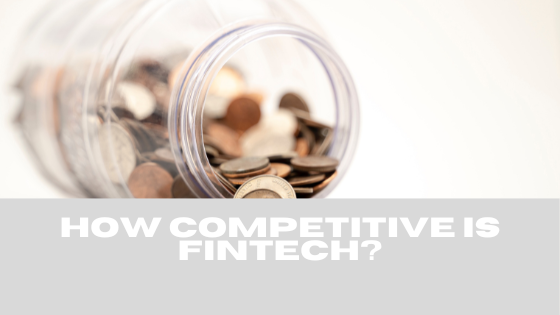Fintech, short for financial technology, has exploded across the globe and asserted itself as one of the most powerful sectors in commerce and business development. Already, a remarkable 64% of world consumers are now using at least one form of fintech product.
That’s exciting for investors and developers. However, tens of thousands of entrepreneurs are jumping in as they hope to create the next great fintech app and get their slice of the pie.
That means fintech is getting crowded and more competitive month by month. Keep in mind, however, that the issue of “competition” is a multilayered and multidimensional quality.
That is, fintech competition is not only heating up between new start-up entities. It is also challenging old institutions, such as legacy banks and financial institutions.
To the latter, fintech is a threat to “business-as-usual.” That’s because fintech naturally competes with traditional banks in numerous ways. Take crowdfunding, for example. This new tech-enabled form of raising cash for business start-ups cuts banks right out of the picture.
Today, even a person with dicey credit can launch a campaign on Kickstarter and go directly to tens of thousands of small investors to get the cash they need. One also can bypass a bank for obtaining basic tools, like a checking account or a merchant account for business. These needs are easily handled by simple and inexpensive-to-use fintech apps.
Be aware that the degree of competition among new fintech firms varies greatly by geography and against the relative maturity of established financial institutions.
Speaking of “established financial institutions,” that is probably the way we can define PayPal today. But just a few years ago, PayPal was one of the early services that could be truly defined as fintech and stood nearly alone. Today it faces fierce competition from numerous players both big and small.
Just a few examples of PayPal’s competition are Google Wallet, Payoneer, Wepay, 2Checkout, Authorize.net, Skrill, Intuit, Propay, Dwolla – and that’s just for starters.
So yes, fintech remains hot -– and a hot market means stiff competition.
